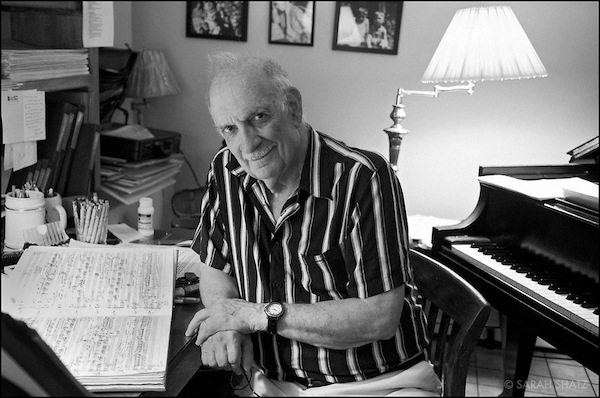Contempo marks Earth Day with bracing “nature” program

The University of Chicago Presents’ Contempo concert probably was not everyone’s idea of a festive Earth Day celebration. (It took place indoors, for one thing.) But for intelligent programming and bracing musical execution, Sunday afternoon’s performances by the International Contemporary Ensemble at the Logan Center were hard to beat.
Since its founding in Chicago in 2001, ICE has concentrated primarily on new music and premieres. Rarely do they venture back to such ancient musical eras as the mid- or late-20th century. As ICE percussionist and co-artistic director Ross Karre put it Sunday, with most of the scores they play “the ink is still dripping off the page.”
But there is much to be said for exploring envelope-pushing composers of the less-recent past as well, and the Contempo program of 20th-century music for small ensembles–written between 1964 and 1985–proved consistently rewarding.
The afternoon led off with Pauline Oliveros’s Earth Ears: A Sonic Ritual for six players. The cyclic score is heavily improvisational with the players called upon to “create a unique dynamic of listening” as the musicians make “informed choices” from the composer’s precise instructions. ICE worked closely with Oliveros, who died in 2016, and has often used her music with student groups to introduce them to contemporary, nontraditional musical styles.
Yet one couldn’t help thinking that this score was likely more interesting to play and to teach than to listen to. While the performance had all the focus and dedication one has come to expect from ICE musicians, Earth Ears proved the sole clinker of the afternoon, inhabiting an arid terrain of acutely concentrated directionlessness. Running ten minutes longer in this performance than the 15 minutes cited in the program, it seemed interminable.
Two miniatures followed, both more compelling even in their microbial durations.
Mario Davidovsky wrote twelve Synchronisms for various instruments between 1963 and 2006. In this series, the composer explores the nexus of live acoustic performance with electronic playback. His Synchronism No. 6 for piano won the Pulitzer Prize for music in 1971.
Michael Nicolas was the cello soloist for Davidovsky’s Synchronism No. 3. In this six-minute work, the unplugged cello and electronics largely stay in parallel universes, more than most in the series. Still, Nicolas was a supreme advocate, bringing a freely Romantic bravura and sensibility to the solo line, vying with the (rather quant) fusillade of reprocessed beeps, blips and buzzes, and having the emphatic final word in his hard-plucked coda.
As Karre wryly noted, his brief spoken introduction to Harrison Birtwistle’s Some Petals from my Twickenham Herbarium ran longer than the three-minute piece itself. This bagatelle catches the British iconoclast in jokey mode, alternating a piercing and intensely aggressive fragment for piccolo and piano against a gentle, ethereal theme for violin, cello, clarinet and glockenspiel. The piece may be a musical goof, but the feather-light delicacy of the musicians in the second theme was wholly entrancing.
Toru Takemitsu was often inspired by natural phenomena in his music, especially rain. Like many of his impressionistic works, the composer’s Rain Spell (1983) is less a literal depiction of precipitation than the moods it engenders. The score calls for a variety of extended instrumental techniques (including clarinet multiphonics, unorthodox harp tuning, and muted piano). At times the playing felt a notch too loud for such subtly hued, atmospheric music, but the final section was quite sensitively rendered by all
George Crumb’s Eleven Echoes of Autumn closed the concert. Written in 1966 for mixed quartet, the work is cast in 11 sections played without pause and characteristic in its precise instructions and unorthodox use of instruments. These include the flutist and clarinetist playing their instruments under the lid of the piano and the musicians uttering a hushed spoken Lorca quote that recurs throughout (“…y los arcos rotos donde sufre el tiempo” [“…and the broken arches where time suffers”]).
If Eleven Echoes isn’t quite as sonically captivating as some of Crumb’s best works, it contains the composer’s wide array of unearthly timbres as well as his congenial, beguiling strangeness. The ICE members (alto flutist Rachel Beetz, violinist Jennifer Curtis, clarinetist Campbell MacDonald and pianist Jacob Greenberg) delivered a taut, scrupulously focused performance with a vast dynamic and timbral range that registered all of the score’s colors and pointillist effects with unerring precision.
George Crumb will turn 90 in October of 2019. Let’s hope that a musical celebration is being planned somewhere in Chicago to pay homage to this distinctively original American voice.
Contempo continues 7:30 p.m. Friday at the Logan Center with Ensemble Dal Niente and the Kontras Quartet performing music of UC student composers. Admission is free. chicagopresents.uchicago.edu
Posted in Performances


